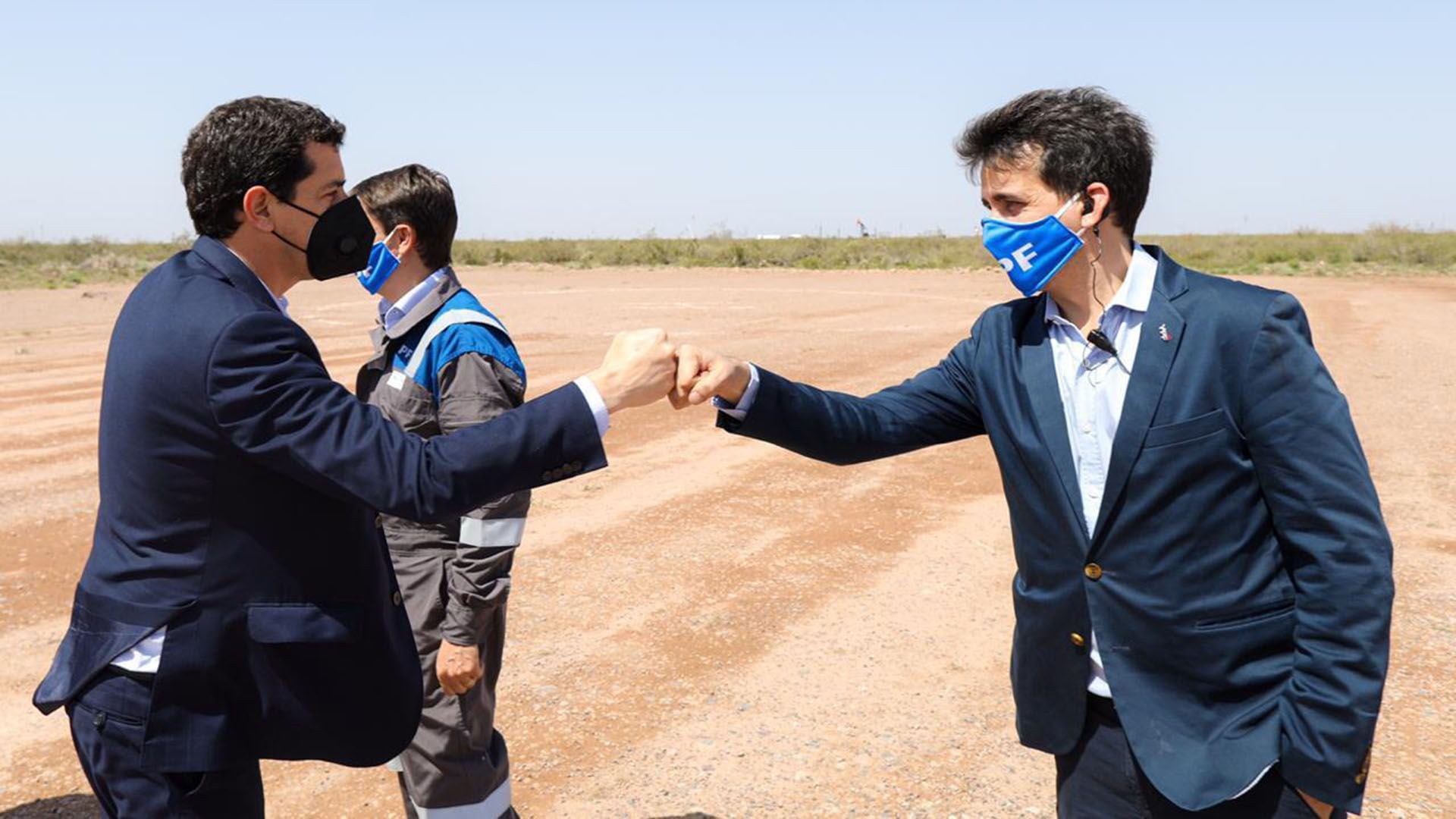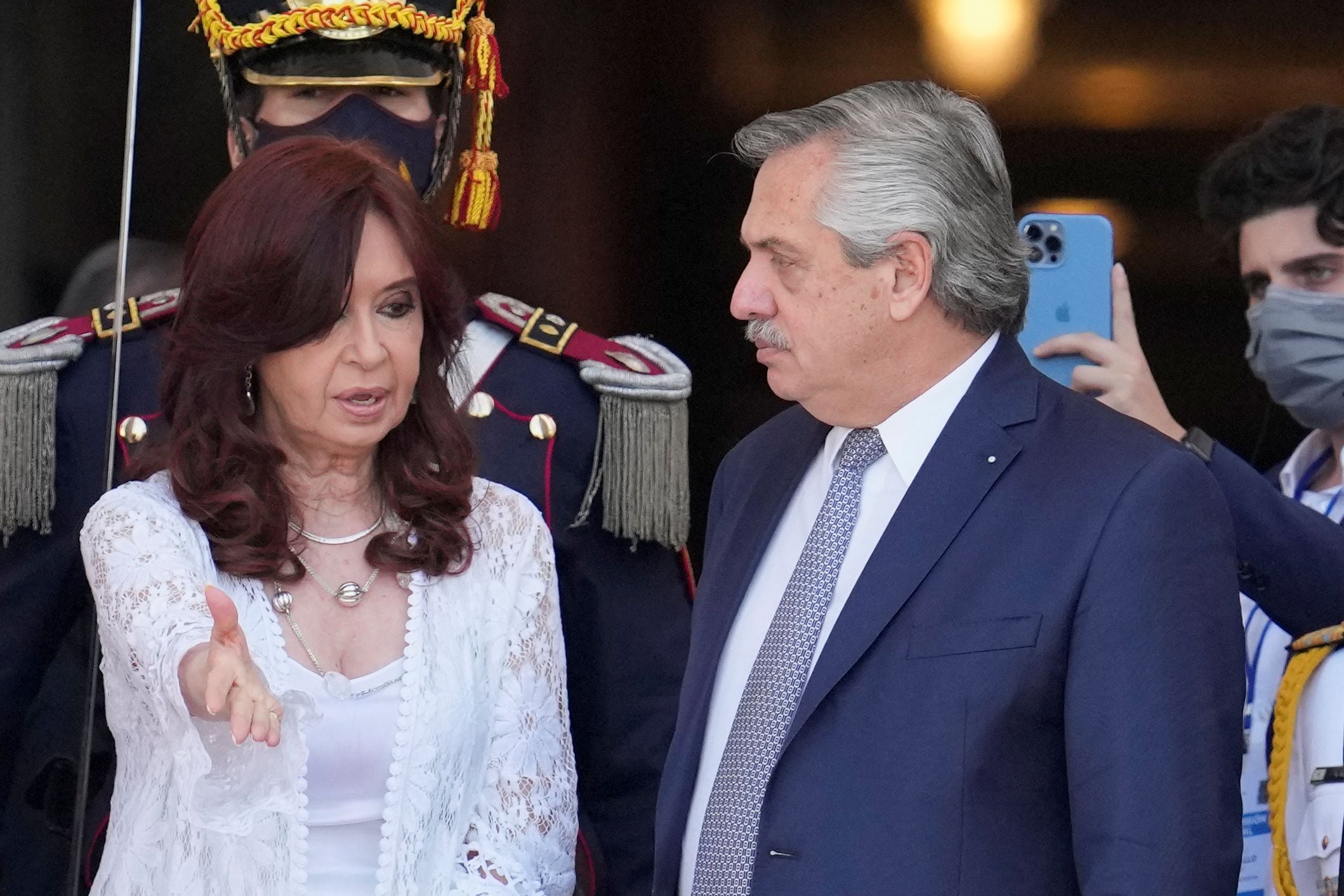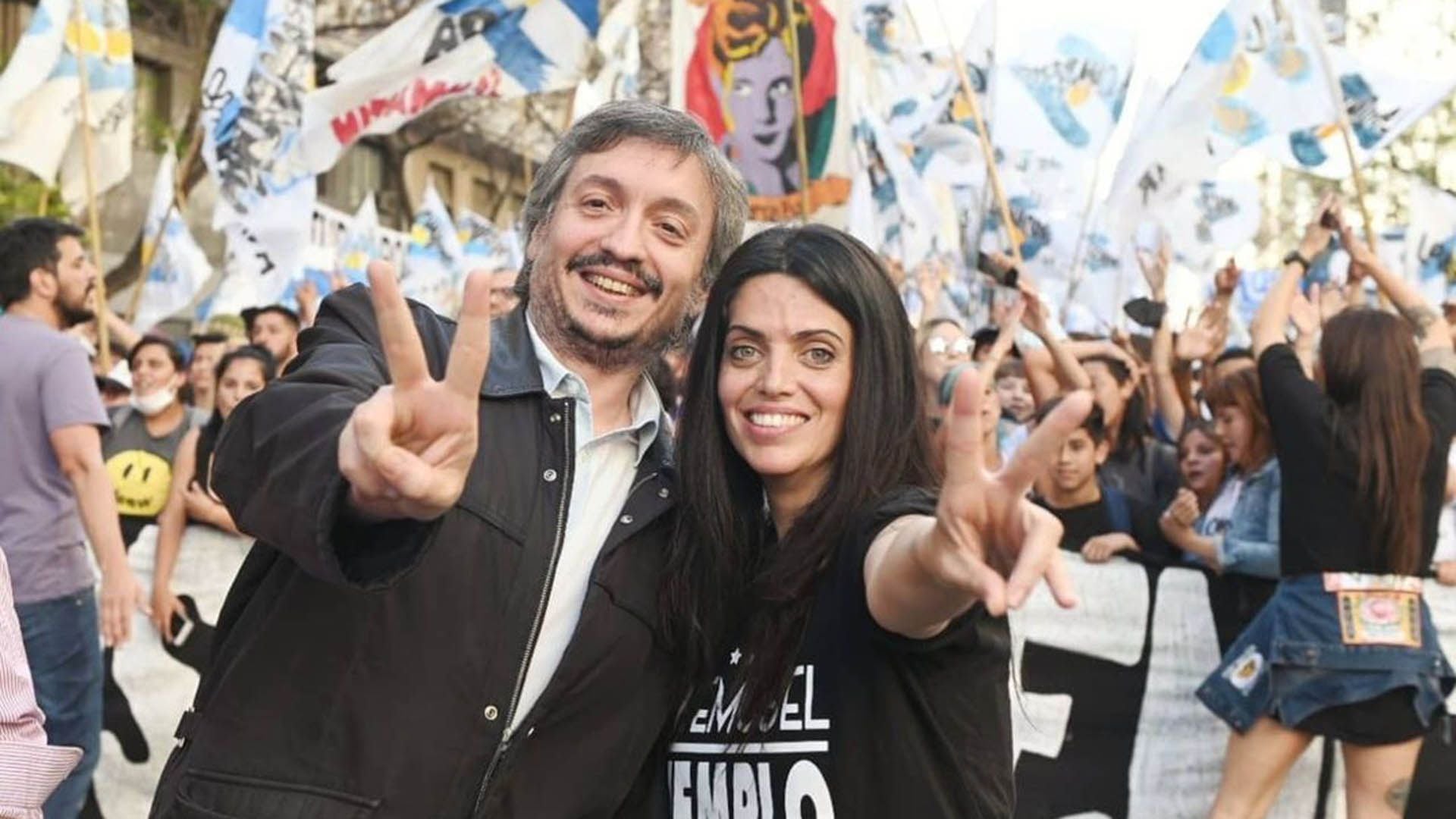
“It has to be a chess play, not a carnage. We have to pass the bill to La Campora. A sign of power is needed. You can't go ahead as if nothing happened,” she reflected over the last week, convulsed by the deepening rift of the Front of All, a leader who has a fluid deal with Alberto Fernández and who, like many officials and ministers, expects a show of authority from the President, in the face of Máximo's decision Kirchner and his group to vote against the agreement with the IMF.
The behavior in the two parliamentary chambers ended up breaking a relationship that was already damaged. Casa Rosada and Kirchnerism go their separate ways. Official confirmation of the internal scandals came through Government Spokeswoman Gabriela Cerrutti, who last Thursday acknowledged that the vice president Cristina Kirchner won't answer the phone to the Head of State.
They do not speak, they do not coordinate public appearances and they do not agree on the measures. They do not conclude agreements and do not try to establish a relationship between the different sectors of Peronism, as they did at some point by appealing to the worn rhetoric of unity. The governing coalition is broken and no one is horrified within the ruling party. Disguising the indissimulable only exposes them to society. The fracture is real and management is unfeasible.
In this context, the circle of officials, governors, ministers and leaders who are aligned with the President or who, at a minimum, are in a Peronist territory where La Campora does not like, expect the first president to make a determination regarding the positions that the grouping occupies in the structure of the State. Make progress on some of the important positions controlled by the organization led by Máximo Kirchner, the main domestic rival since his resignation from the presidency of the ruling bench in the Chamber of Deputies. Fernandez seems willing to do it this time.

In short, they want a show of power that will give new impetus to management, that will strengthen it in the face of the different Kirchnerist attacks and that will change the political course of the Government in the last two years. In Peronism, they are clear that the coalition's coexistence in the coming months and the construction of a path depends on this possible movement. culminating in presidential re-election in 2023.
“Are we going to let La Campora build its own candidate with the “boxes” of a government they boycott?” , asked an albertist determined to resist the consequences of a rupture if internal tension were to reach a limit. The reality is that Fernández does not intend to completely break the alliance, but he does intend to set the stage for the sector that has most questioned his management.
The ultra K group has gained power over the years. It grew exponentially during Cristina Kirchner's second term, it buckled and maintained its volume as opposition during Mauricio Macri's administration, and benefited from the distribution of positions at the beginning of Alberto Fernández's government. La Campora is an organic, disciplined, orderly and compact space. No one takes their feet off the plate or speaks publicly if their superiors didn't give them the endorsement.
Of the 21 portfolios that Fernández formed in 2019 has state structure, only one of them is managed by a camper operator: the Ministry of the Interior. Eduardo “Wado” de Pedro, a strong man of the group and one of the founders who is part of the leadership table, occupies one of the two political ministries based in the Casa Rosada and key to the relationship with all the country's governors.
De Pedro is currently rebuilding his bond with Fernández, after the relationship was frozen when the official led the presentation of mass resignations of Kirchnerism, three days after the defeat of the All Front in the PASO. This institutional and political crisis was triggered by Cristina Kirchner's decision to pressure the President to make a change of Cabinet which Fernández refused.
“I used to be very angry with Wado about his resignation and now he said 'Wadito' again as if nothing happened. Who can believe that this time Alberto really hit the table?” , reasoned, with annoyance, an official with access to the presidential office who does not have a good link with Kirchner's group.

In the second lines of the Ministry of the Interior The Campora is also present. The Interior Secretary, José Lepere; the Director of Migration, Florencia Carginano; the head of the Renaper, Santiago Rodríguez and the brand new National Electoral Director, Marcos Schiavi, are part of the group. Schiavi, in particular, is a very trustworthy man of De Pedro and one of the few bridges of dialogue that exist between Balcarce 50 and the government of Horacio Rodríguez Larreta.
The Campora is present, in second or third lines, in nine of the twenty-one ministries. In addition to the Interior, there are officials in Justice, Economy, Social Development, Agriculture, Science and Technology, Transport, Education and Culture. They also lead the PAMI and ANSES, and they have important leaders in YPF.
The Minister of Justice, Martín Soria, is a tough Kirchnerist with good harmony with camporism, although he is not part of the group. His second in the hierarchical structure is Juan Martín Mena, who is part of the group and was pointed out by a sector of Peronism as a supposed political commissioner of former minister Marcela Losardo, friend and partner of the head of state. Within the Justice scheme is the Secretary for Human Rights who is led by Horacio Pietragalla Corti, a tough camper.
In Economics, the strong name of camporism is that of the Undersecretary of Energy, Federico Basualdo, the protagonist of a harmful dispute between Casa Rosada and Kirchnerism last year when the minister, Martín Guzmán, sought to remove him from office because he did not agree with the tariff scheme he was going to implement. Basualdo did not leave and the media served as a conduit for crossing accusations between the different sectors of the Front of All.
In Social Development, led by “Juanchi” Zabaleta, one of Alberto Fernández's closest ministers, there is a secretary and two undersecretariats controlled by camporism. The Secretary for Food Policies is in charge of Laura Alonso; the Undersecretary for Community Coordination and Communication is headed by Laura Grande, while the Undersecretary for Territorial Approach is headed by Eugenia Meana.

In Agriculture, former provincial senator Gervasio Bozzano is in charge of the General Directorate of Sectoral and Special Programs and Projects; in Science and Technology the Undersecretary for Institutional Coordination is led by Pablo Nuñez; in Education the Undersecretary for Strengthening Trajectories Students have Leandro Quiroga as head, and in Culture the Secretariat of Cultural Management has Maximiliano Uceda as head of the area.
In the structure of the Transport portfolio, led by the massist Alexis Guerrera, there are no officials from La Campora. However, there are posts that control in the agencies that regulate aviation and that are under the orbit of the ministry. The president of Aerolíneas Argentinas, Pablo Ceriani, and Vice President Gustavo Lipovich are part of the group. The head of Argentine Air Navigation (EANA), Gabriela Logatto, and the vice president of the Regulatory Body of the National Airports System (ORSNA), Fernando Muriel, are also in the camper ranks.
The head of ANSES, Fernanda Raverta, is on the front line of La Campora and is in charge of one of the most important “boxes” in the state. At the top of the organism, most of them are camper drivers. The Chief of Staff, Juan Pablo Yovovich; the Secretary General, Santiago Fraschina; the Secretary of Benefits, Facundo Tignanelli; the Legal Secretary, Javier Pargament, and Alejandro Merediz, in charge of the Administrative Sub-Directorate, are part of the Ultra K group.
Within ANSES officials of the macrista management survive, which generates some annoyance in the organism's microclimate, since they believe that La Campora shows a very combative outward discourse, but it continues to maintain officials who promoted during Mauricio Macri's government.

The PAMI is a completely camporist scheme. In charge of Luana Volnovich, the agency manages another of the key “boxes” within the state organization chart. Vulnovich's second is his partner, Martin Rodriguez, who is the Deputy Executive Director. Both were targeted by Alberto Fernández after traveling to Mexico during his holidays, in the midst of an economic crisis and a government campaign for Argentines to vacation in the interior of the country.
At that time, in the government sector closest to the President, they thought it was time to give La Campora a blow, but Fernández kept them both in office. The same thing happened in the post-PASO crisis, when there were ministers who advised him to accept the resignation of those who had submitted it, including Pedro's “Wado”, and to demand that Cristina Kirchner change of names, but to maintain the places of power of each sector. The President did not accept that option.
In YPF there are two heavy camperors in the group. Santiago “Patucho” Álvarez is the vice president of Public Affairs, Communication and Marketing, and Desiré Cano controls the executive management of communications. The director, the saint crucian Pablo González, is an official linked to Kirchnerism. He was deputy governor of Alicia Kirchner in the southern province and has a good link with La Campora.
There are 28 important positions that today control camporismo as part of an agreement made in 2019. There are more in third and fourth lines. In short, the group is one of the investors of the Frente de Todos and fights for its place in real power. That fight has been effective and has strengthened its political, economic and ideological framework.

In the heart of the Government, Fernández is asked to give a signal to the inside of Peronism and to run to one of the camperistas who occupy important places in the state organization chart. Let it do so as part of a Cabinet renovation or as a unilateral measure that no one should be surprised at. The national government warns that the break is inevitable and the vote against the agreement with the IMF was to cross a boundary.
In addition, they feel that there is a permanent wear and tear exerted by the group and that management will be complex with them inside or virtually outside the circle of government. Fernández will wait to settle the first installment with the IMF next week to make some kind of movement. He wants the agreement to be part of the past and lead a sort of relaunch of management. One more time.
Many of the ministers and officials who are close to him are wary that he will eventually advance on any of the places controlled by Maximo Kirchner's group. There is some dissatisfaction with his lack of authority to retract the political moves of the K world, although this time some Albertist voices believe that he will not miss the opportunity.
KEEP READING:
Últimas Noticias
Debanhi Escobar: they secured the motel where she was found lifeless in a cistern
Members of the Specialized Prosecutor's Office in Nuevo León secured the Nueva Castilla Motel as part of the investigations into the case

The oldest person in the world died at the age of 119
Kane Tanaka lived in Japan. She was born six months earlier than George Orwell, the same year that the Wright brothers first flew, and Marie Curie became the first woman to win a Nobel Prize

Macabre find in CDMX: they left a body bagged and tied in a taxi
The body was left in the back seats of the car. It was covered with black bags and tied with industrial tape
The eagles of America will face Manchester City in a duel of legends. Here are the details
The top Mexican football champion will play a match with Pep Guardiola's squad in the Lone Star Cup

Why is it good to bring dogs out to know the world when they are puppies
A so-called protection against the spread of diseases threatens the integral development of dogs




